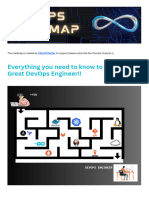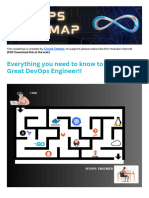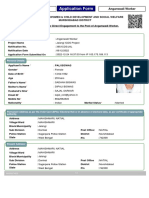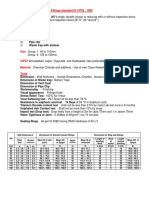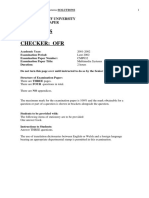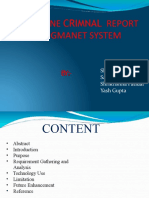0% found this document useful (0 votes)
51 views50 pagesDevops Road Map
The document outlines a comprehensive DevOps roadmap for beginners, detailing the stages from foundational knowledge to advanced proficiency. It includes essential skills, tools, and practices across various phases such as CI/CD, configuration management, containerization, and cloud fundamentals. Additionally, it emphasizes the importance of hands-on projects and portfolio building to prepare for a career in DevOps.
Uploaded by
Thanushree VCopyright
© © All Rights Reserved
We take content rights seriously. If you suspect this is your content, claim it here.
Available Formats
Download as DOCX, PDF, TXT or read online on Scribd
0% found this document useful (0 votes)
51 views50 pagesDevops Road Map
The document outlines a comprehensive DevOps roadmap for beginners, detailing the stages from foundational knowledge to advanced proficiency. It includes essential skills, tools, and practices across various phases such as CI/CD, configuration management, containerization, and cloud fundamentals. Additionally, it emphasizes the importance of hands-on projects and portfolio building to prepare for a career in DevOps.
Uploaded by
Thanushree VCopyright
© © All Rights Reserved
We take content rights seriously. If you suspect this is your content, claim it here.
Available Formats
Download as DOCX, PDF, TXT or read online on Scribd
/ 50

























